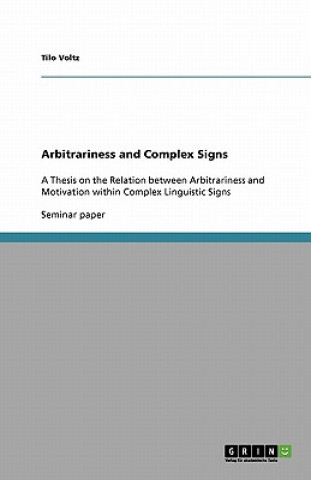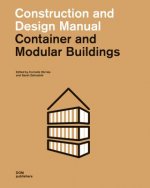
Livrare
Consilier de cumpărături





Nu se pretează? Nu contează! La noi puteți returna bunurile în 30 de zile
 Voucher cadou
orice valoare
Voucher cadou
orice valoare
Cu un voucher cadou nu veți da greș. În schimbul voucherului, destinatarul își poate alege orice din oferta noastră.
Arbitrariness and Complex Signs
 engleză
engleză
 39 b
39 b
30 de zile pentru retur bunuri
Ar putea de asemenea, să te intereseze


Seminar paper from the year 2008 in the subject English Language and Literature Studies - Literature, printed single-sided, grade: 2,3, University of Leipzig (Institut für Anglistik), course: Motivation and Arbitrariness in the English Language, 9 entries in the bibliography, language: English, abstract: The following essay wants to draw attention to the relation between motivation and ar-bitrariness within complex linguistic signs. Modern linguistics tries to establish motivation within the language system and by this often seems to negotiate arbitrariness. Bolinger claimed in 1980: Arbitrary and conventional is a fitting description of distinctive sounds, less so of words, even less of sentences, and beyond that scarcely fits at all (Fischer & Nänny, 1999, p. xxi). Dirven and Verspoor proclaim that most of the complex forms of lan-guage are not arbitrary, but transparent or motivated (Dirven & Verspoor, p. 21).Motivation is used to construct convincing explanations for sometimes mystified phe-nomena in a language. Motivated by C.S. Peirce s sign system, linguistic signs are recently moved from a box signed symbol into a box signed icon . Language by this is meant to be a more or less predictable act, which is based on translucent regularities and ordering princi-ples. Structural similarities are the basis of motivation, which examines and proclaims ordeing principles in all spheres of the language: phonology, morphology, lexicon and semantics Motivation even obstructs the syntax of a language.Three main ideas underlie the principle of motivation: (i) sequential ordering, (ii) quan-tity and (iii) proximity. Simplified, the ideas can be summarized as follows: (i) arrangement of linguistic elements according to temporal events, like he opened the door and came in or veni, vidi, vici; (ii) the amount of meaning is reflected in the amount of linguistic form , like I go I went I had gone or a car a green car a green convertible; (iii) conceptual distance is reflected in formal distance, like I made her leave I wanted her to leave I wished she would leave.Essential to all three principles of iconicity is the kind of motivation they supply. What can be identified by sequential ordering, quantity and proximity is the formal and conceptual structure of a linguistic sign. Metaphorically speaking, motivation provides the bones (formal structure) and the muscles (conceptual structure) to complex linguistic sign. What motiva-tion can neither answer nor negotiate is the question of element s arbitrariness, and why a certain concept is conventionally linked to a representing sound pattern. Moreover, it is the arbitrary character of simplex forms, which enables the understanding of complex signs.The aim of this paper is to raise an awareness for the inseparable connection of arbi-trariness and motivation in the analysis of complex signs. This aim will be achieved in three steps. First, the distinction between simplex and complex sign is focused, followed by a short introduction of the linguistic sign and a simplified understanding of language. Beyond, two important possibilities of analyzing linguistic signs and language are proposed: a sign inter-nal and a sign related analysis. In a second step, arbitrariness and motivation are correlated to the two processes of analyzing a language. In a last step, the thesis will be exemplified.
Informații despre carte
 engleză
engleză




 Cum să cumpăr
Cum să cumpăr

































